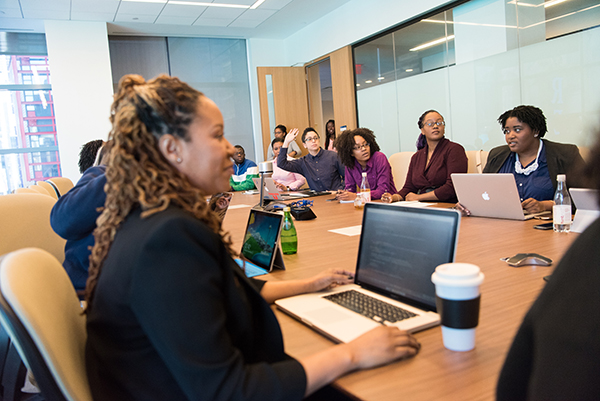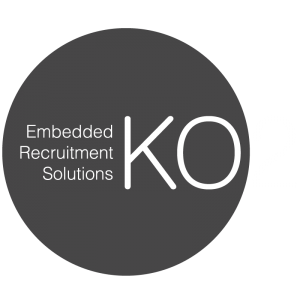The UK is undoubtedly facing a period of economic uncertainty. Not only is this having an impact on us as individuals through things like the increased cost of living, but it’s also meaning that businesses are struggling to forecast financially and that things like hiring new employees have become a much riskier venture.
One of the solutions that have been growing in popularity during the current economic climate is contractor hiring, which involves recruiting temporary employees to help a company take on more work without committing to full-time hires. In this article, we share our advice on how hiring a contractor can help your engineering company, what to know before hiring a contractor and how best to do this for your business.
The Challenges of Hiring During Economic Uncertainty
Economic uncertainty presents various challenges for engineering businesses, and hiring is one of the main areas where struggles can present themselves. Growing a team, especially at a fast pace, can be tricky to manage even in ideal circumstances, and business owners are right to be wary of making big changes during periods of financial uncertainty.
Economic uncertainty, whether in the form of a global recession or just changes within an industry, can reduce the number of customers or clients that provide an engineering company with its income. Without the certainty of a steady stream of work and money, it’s much harder to make long-term decisions around all kinds of business matters, including hiring.
Perhaps the biggest challenge is that a lack of reliable financial forecasting makes it hard to know whether you can support a new full-time employee. Small or new engineering businesses in particular will have fewer reserves to draw on to pay salaries if client works peters out, and you don’t want to end up having to let go of a new employee after a few months.
It can also be hard to know whether a permanent, full-time employee is needed during economic uncertainty because an engineering company’s workload is less predictable. Employers run the risk of hiring new staff to deal with a predicted increase in projects, only for these projects to fall through and new hires to be left without any work.
The recruitment market also changes during periods of economic uncertainty, which makes hiring more challenging if a company does decide that they need to grow its team. Job losses may lead to more engineering candidates on the market, but this can then make the recruitment process slower because you’re having to sift through a lot more applicants.
Seeking out passive candidates for particular roles also gets a lot harder when the economy is unpredictable because employees are less likely to want to leave their jobs. If someone has a secure role within a company, they’re going to be more hesitant about leaving that role for something new when there’s the potential for circumstances to change, so it can be harder to hire if you’re looking for specific skills.
Another challenge of hiring during situations like a recession is that the stakes are higher with every new employee you select, as you can’t be 100% certain if you’ll continue to need a larger team or be able to afford to pay one. This makes it more important than ever to choose the right candidate and successfully onboard them, which can make the whole process more stressful.
There will always be instances where a company has to hire a full-time, permanent employee even when the financial future is unclear. But in some cases, this might be a risk that isn’t worth taking. For engineering companies faced with this scenario, hiring contractors could be the ideal solution.

How Can Hiring Contractors Help?
Hiring a contractor means bringing in an employee that will work for you on a short-term basis, the length of which will depend on their contract. They will become a member of your team to assist with a specific project or provide support whilst it’s needed, but aren’t a permanent member of the team and will go off and work somewhere else after their contract runs out.
Contract employees might come on in a consultancy position to offer specialist advice and guidance on a particular project, or they might just be looking for work for a couple of months before they move on to something else. Freelance work has been on the rise in the past year or so, which means that there are more contract engineers than ever out there who could join your team and help you stay afloat during difficult periods.
According to a 2022 report from A.Team, 73% of companies in the tech industry are using teams made up of a mix of full-time employees and freelancers. 71% of these said that the use of independent talent means that they have “greater agility during times of economic uncertainty“ especially due to the increase in remote work.
Hiring a contractor instead of a permanent employee allows you to meet the needs of your engineering company in the moment, without having to worry about the longevity of this decision. You can manage increases in your workload by bringing in additional employees for projects and then reverting back to your permanent team if there is a lull in client or customer work.
It can also be very beneficial to bring in a talented or specialist contractor if you’re facing economic uncertainty, as they may be able to provide the insight or innovation that you need to keep your company afloat. Consultants can be very useful in these scenarios, and even though their fees are higher than a typical salary, it’s a short-term investment that can lead to brilliant results.
Finally, bringing in a contract employee often means that you’re hiring someone that already has the skills and training for the role and won’t require a lengthy onboarding process. This can be a benefit because not only will it save other employees time, but it means you can grow your team and start reaping the benefits straight away, which is useful in a high-stakes situation.

What to Know Before Hiring a Contractor
Hiring a contractor involves a recruitment process that follows a very similar pattern to hiring a permanent employee. However, when it comes to sourcing candidates, you may need to take a different approach.
Firstly, if you’re looking for a contract employee with specific engineering skills, your sourcing process will be different. These kinds of freelance contractors or consultants often have their own websites or advertise themselves like a business, so you may be able to find them through directories, research or by word-of-mouth.
The increase in freelance work in the engineering industry also means that job adverts for temporary positions are more common and more likely to get good responses from candidates looking for this kind of work. However, it can be trickier to gauge the suitability of these candidates if they have quite a varied record of work, so you may need to be more thorough in your screening process.
There are some legal differences between hiring and paying a contract employee vs a permanent employee, although most of these should be dealt with by the contractor themselves. However, it’s important to check the employment status and relevant actions depending on the type of employee you’re hiring, especially concerning new IR35 regulations.
Another important thing to consider before hiring a contractor is the kind of employment contract you’re going to offer them. This might be until a project has reached completion or for a set number of months, or could just be for a fixed number of hours that the contractor works as and when they can.
The kind of employment contract you offer will also impact how the contractor fits into your existing team, so you need to consider what you’re looking for in terms of the commitment from this temporary employee. Will you be expecting them to work the same hours as the rest of the team and come into the office if you have one, or do you just need them to deliver the work required by a deadline?
Experienced freelancers may be more specific about what they want from an employment contract so you should also be prepared to negotiate and have a clear idea of what is and isn’t essential.

How to Grow Your Team By Hiring Contractors
There are lots of different ways that you can grow your engineering team with contract employees whilst you’re handling economic uncertainty. This freedom is really useful, especially when your existing team is quite small.
First of all, you might decide that you need an extra pair of hands in your team to manage your current workload, but don’t want to commit to a full-time hire. You could hire a contractor on a month-by-month basis to navigate this period, and always consider hiring them permanently if the workload stays the same.
In the case of projects or one-off tasks, you could grow your engineering team by hiring a contract employee that has specific experience in the relevant area. They might be brought in as a project manager, or they could just take charge of technical tasks and will finish working for you when the work is complete.
If you feel like your engineering company requires insight to navigate the economic uncertainty, or you’d like to launch a new offering or product, hiring a temporary consultant would give your team the knowledge and experience needed without hiring a full-time senior member of staff.
Finally, you may just use freelancers to build out your team of engineers whilst you work towards more consistent profits, and then gradually replace these employees with permanent staff, or offer them permanent employment. The beauty of this approach is that it gives you some flexibility to respond to financial changes as they happen whilst ensuring that all employees know that their job is relatively secure.

Top Tips for Recruitment During Economic Uncertainty
Now that we’ve covered how contract hiring can be beneficial for engineering companies facing economic uncertainty, here are five things to remember about recruiting in this unpredictable context.
Be Specific on What You Need
As we’ve already touched up, there’s no room for error when you’re hiring at a time of financial uncertainty. Before you start trying to fill a role or plug a skills gap, be very specific on exactly what you’ll need from a candidate, how long you’ll need them for and any essential experience required.
Check References
Leading on from that point, you also want to ensure that you’re not hiring anyone that might not be a good fit for your company or who just cannot deliver on what they promised. Be sure to check references for candidates and consider asking for recommendations from your network if you’re looking for a contractor with specific skills or experience.
Stay Flexible with Contracts
Flexibility is key during economic uncertainty, and you should keep this in mind when you’re negotiating and outlining contracts for temporary employees. Be prepared to make amendments and collaborate with contract workers to find the best solution for everyone involved, especially if you want to work with talented engineers.
Utilise Remote Workers
The rise of remote working has been brilliant for recruitment, as engineering companies now have access to a much more diverse pool of candidates which makes it easier to find precisely what you’re looking for. When it comes to contract hiring, you should make the most of how remote workers can help plug a skills gap or offer valuable help with delegating tasks and avoid just looking for employees in the same location as your company is based.
Keep the Future in Mind
Finally, whilst it may be tricky to think of anything other than keeping your engineering company afloat, it’s important to keep the future in mind when you’re coming up with a long-term recruitment plan. Contract employees are incredibly useful, but if an overall goal is growing your team then you’ll need to identify points where a permanent hire would be just as useful.

Summary
Increases in both remote work and freelancing mean that we’re likely to see more and more engineering companies grow their teams using both permanent and contract employees. And in the face of economic uncertainty, this approach to recruitment allows for much more security without compromising on the talent and workforce needed to run a business.
At KO2, we recruit candidates for both contract and permanent roles in the electronics and embedded systems engineering industry. If you’re looking for the support of a specialist recruiter, get in touch, or take a look at our expertise.







